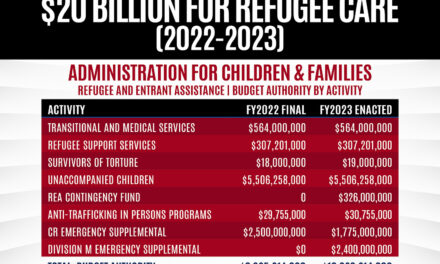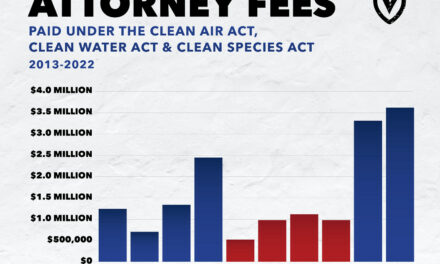We support our Publishers and Content Creators. You can view this story on their website by CLICKING HERE.
A private Texas high-speed rail venture is resurrected from the dead by the feds.
Topline
A long-delayed and over-budget proposed high-speed rail between Houston and Dallas/Fort Worth just received a new lifeline: $500,000 for a feasibility study from you, the American taxpayer, via the Federal Railroad Administration (FRA).
It’s happening even though the original company’s board disbanded and its CEO quit back in 2022.
According to Reason Magazine, the company was in such poor financial condition, it couldn’t even pay its property taxes on time.
No matter. It just might be bailed out by the Biden Administration.
Key Facts
Launched in 2013 as a private venture by Texas Central Railway, the planned 240-mile high-speed rail line was anticipated to run at 200 MPH+ between Houston and Dallas/Fort Worth with a travel time of less than 90 minutes.
Initially estimated to cost $10 billion, by 2020 it became a $30 billion project. Texas Central Railway originally committed to constructing and operating the proposed system without public funding and received up to $350 million from Japan Overseas Infrastructure Investment Corporation for Transport & Urban Development.
Now, after the project was seemingly dead, everything is changing.
Texas Central Railway has since partnered with Amtrak to apply for taxpayer-government grants including the recent $500,000 it just received.
However, Texas rail lines are some of the most unprofitable in Amtrak’s portfolio. It seems that Texans aren’t keen about riding trains.
Texas Republican Reps. Jake Ellzey and Michael McCaul wrote a September 2023 letter to the FRA opposing the grant application:
“By partnering with Texas Central, organized as a private limited liability corporation, Amtrak will funnel federal taxpayer money to a private corporation for what was initially proposed as an exclusively privately funded venture. The project has received fierce pushback from rural landowners as well as county and local governments along the proposed route.”
Background
In 2022, after the CEO left, the board disbanded, and the company is now being managed by FTI Consulting. This firm specializes in “liquidity forecast development, business plan development and analyses, collateral evaluations and recovery assessment and contingency planning,” according to the company biography.
Earlier, Texas Central Railway tried persuasion to buy private property from landowners but has had multiple legal battles with landowners and Grimes County, who refuse to sell their land.
Then, in June 2022, the Supreme Court of Texas, ruled that the company has eminent domain authority on land that is needed to build the rail line. Now, they can force private land owners to sell.
While the company said the project would create 17,000 jobs and have an economic impact of $36 billion, landowners raised concerns about the abuse of eminent domain and questioned how many passengers would use the train.
Re-Route the Route, an advocacy group supportive of moving the rail alignment to a safer location, has opposed it. New studies estimate that only 1.4 million people will ride each year rather than the estimated 5.9 million.
If accurate, the high-speed rail project will never be profitable and will be just another billion-dollar local boondoggle subsidized by national tax dollars.
Critical Quote
“If approved, these applications will result in taxpayer money being used by a private company to take private land from landowners through eminent domain,” Reps. Jake Ellzey and Michael McCaul wrote in their letter to the FRA. “Landowners deserve to have their land rights protected against the unrealistic and financially infeasible rail project proposed to be funded through these applications.”
Summary
For the last decade, this private train project promised no taxpayer funding. But now, the feds are at the table. So here’s the question:
Should taxpayer dollars be pumped into a project that appeared dead in the water, one whose price tag tripled, and whose leaders jumped ship?
Additional Reading
California’s High Speed Train To No-Where, U.S. Senator Joni Ernst, The Squeal Award, April 25, 2023
BART Seeks Another $2.3B in Federal Funds for CA Train, Waste Of The Day, Adam Andrzejewski, RealClearPolicy, November 23, 2022
GOP Lawmakers Lead Congress’ $13 Billion+ Earmarks in FY2024, Waste Of The Day, Adam Andrzejewski, RealClearInvestigations, October 18, 2023
Runaway Train: How Hawaii’s Rail Project Went Off The Tracks, U.S. Senator Joni Ernst
About Us
OpenTheBooks.com – We believe transparency is transformational. Using forensic auditing and open records, we hold government accountable.
In year 2023, we filed 55,000 FOIA requests and successfully captured nearly all federal spending; 50 state checkbooks; vendor checkbooks from 17,000 municipal level governments; and 25 million public employee salary and pension records from 50,000 public bodies across America.
Our works have been featured at the BBC, Good Morning America, ABC World News Tonight, The Wall Street Journal, USA Today, C-SPAN, The New York Times, NBC News, FOX News, Forbes, National Public Radio (NPR), Sinclair Broadcast Group, Chicago Tribune & many others.
Our organization accepts no government funding and was founded by CEO Adam Andrzejewski. Our federal oversight work was cited twice in the President’s Budget To Congress FY2021. Andrzejewski’s presentation, The Depth of the Swamp, at the Hillsdale College National Leadership Seminar 2020 in Naples, Florida posted on YouTube received 4+ million views.
NOTICE: We reserve the right to remove comments that deemed offensive to our organization, staff, and audience.

 Conservative
Conservative  Search
Search Trending
Trending Current News
Current News 





